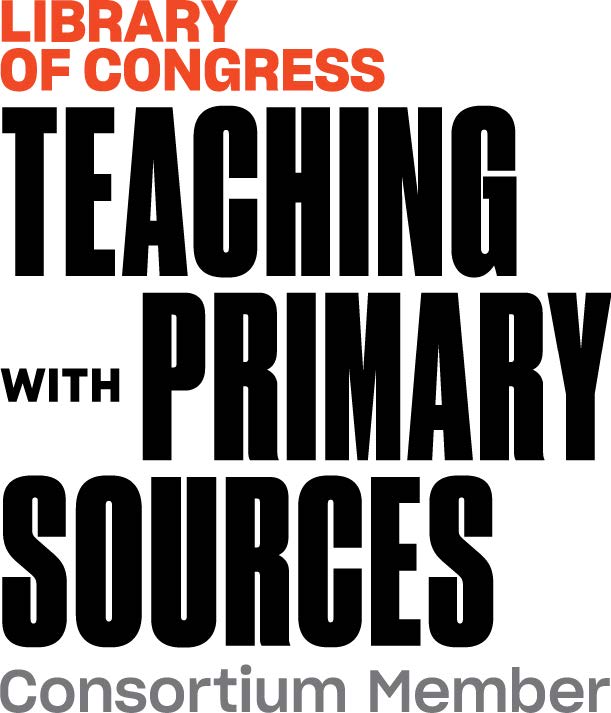Using the Library of Congress Archives in Student Research and Historical Argumentation
In the Fall of 2021, the Rhode Island Historical society hosted four virtual teacher professional development sessions on using the Library of Congress and local archives in student research. Although the sessions were aimed at middle and high school teachers who take part in National History Day, topics covered are beneficial for any teacher guiding students in research using primary sources. Recordings of the sessions and supplementary materials are available for viewing below. This four-part series is sponsored in part by the Library of Congress Teaching with Primary Sources Eastern Region Program, coordinated by Waynesburg University. Funding also includes support fees and travel for Rhode Island teachers and students whose History Day projects advance to the National History Day contest which takes place in June, 2022!
Learn more about the Library of Congress’ Teaching with Primary Sources program by visiting their website. Find teacher’s guides, primary resource analysis tools, primary resource sets, classroom materials, professional development and more!
Also see the full Guide to Student Research and Historical Argumentation from National History Day and the Library of Congress and National History Day’s work with Library of Congress materials. And, the Citizen U Primary Source Nexus Teaching Resources Blog has a section on the NHD 2022 theme and primary source sets from the Library of Congress. Visit our Rhode Island History Day website to learn more about the Rhode Island state contest for History Day.
Using the Library of Congress Archives in Student Research and Historical Argumentation – Part One
Recording from the October 27, 2021 virtual teacher professional development program. In this session, Lynne O’Hara from National History Day briefly introduces the National History Day program, the 2022 contest theme – Debate & Diplomacy in History: Successes, Failures, Consequences, and discusses ways to help guide students in selecting topics, building a research plan, and how to research the Library of Congress’ online archives. You do not need to be a National History Day teacher to benefit from this material!
Using the Library of Congress Archives in Student Research and Historical Argumentation – Part Two
Recording from the November 3, 2021 virtual teacher professional development program. In this session, Lynne O’Hara from National History Day continues the earlier session by walking through primary source analysis (the O-R-Q method) by using examples from the Library of Congress, discusses ways to guide students in setting up a historical claim or thesis and setting up an argument with supporting evidence.
Session Materials
Using the Library of Congress Archives in Student Research and Historical Argumentation – Part Three
Recording from the November 10, 2021 virtual teacher professional development program. In this session, the Rhode Island State Archives and the Rhode Island Black Heritage Society each demonstrate what is available in their archives and how students access materials, either digitally or in person physically. They also highlighted a number of resources available for teachers and students for student research in Rhode Island topics. See the materials to the right for a primary resource packet pairing Library of Congress materials to this session.
Using the Library of Congress Archives in Student Research and Historical Argumentation – Part Four
Recording from the November 17, 2021 virtual teacher professional development program. In this session, the Rhode Island Historical Society and the Tomaquag Museum each demonstrate what is available in their archives and how students access materials, either digitally or in person physically. They also highlighted a number of resources available for teachers and students for student research in Rhode Island topics. The Tomaquag Museum gives a brief overview of recognizing bias in research with respect to research about Indigenous peoples. See the materials to the right for a primary resource packet pairing Library of Congress materials to this session.

